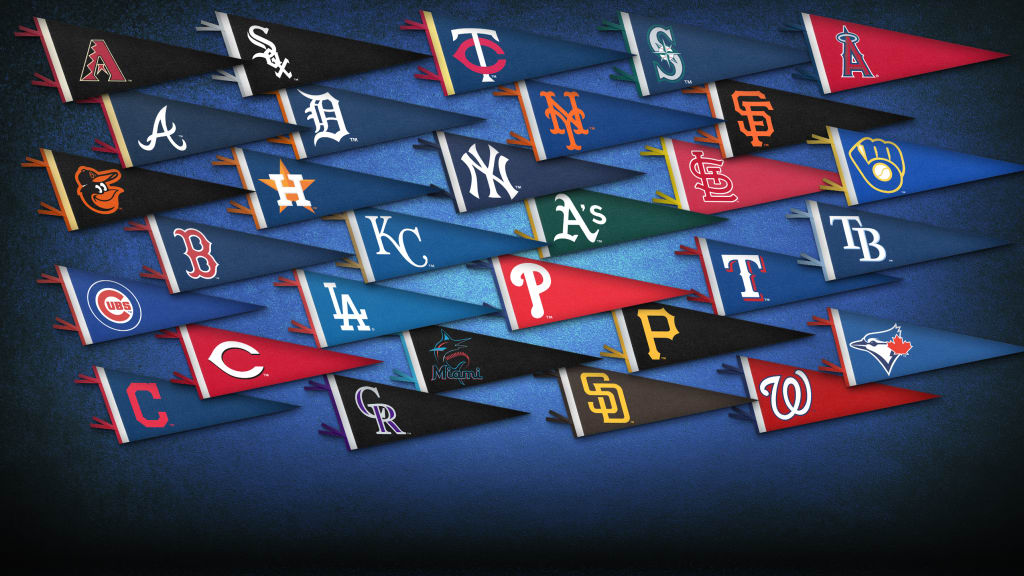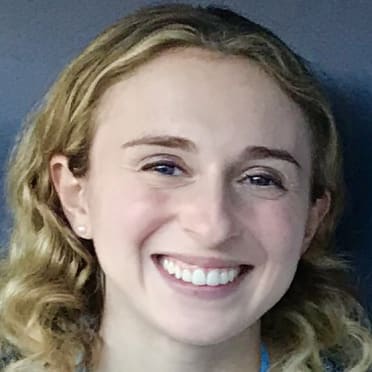
Everyone wants to make a strong first impression, and there are few individual accomplishments more impactful than doing so in the form of an MVP Award in a first season after changing teams. Only nine players have won MVP honors in their first year with a new team following a trade, and another six have done so in their first year with a team joined in free agency.
Here’s a look at the 15 players to win an MVP Award in their first year with a new team, in reverse chronological order. Note that this list includes players who played in the Majors before joining a new team -- so Ichiro Suzuki, who won in 2001 as a rookie, is not included (Fred Lynn won as a second-year rookie in 1975).
2024: Shohei Ohtani, Dodgers
Acquired: free agent
Ohtani joined the Dodgers on a record 10-year, $700 million contract following six seasons with the Angels, and his signing immediately paid dividends. The two-way superstar was unable to pitch in his first season with the Dodgers after undergoing right elbow surgery the year before, but he made history nonetheless, becoming the first player in MLB history to hit at least 50 home runs (54) and steal at least 50 bases (59) in the same season.
That performance earned Ohtani the third MVP Award of his career (all unanimous). It also marked the first time a full-time designated hitter has been named MVP. Not only that, but he helped lead the Dodgers to a World Series title in his first career postseason.
2018: Christian Yelich, Brewers
Acquired: traded from MIA
The Marlins traded Yelich to the Brewers after the 2017 season, the month after they’d traded reigning NL MVP Giancarlo Stanton to the Yankees. Yelich was on the heels of two straight 4.8 WAR seasons, the top two of his career. But he was even better in ‘18, putting up 7.3 WAR and winning the first batting title in Brewers history en route to MVP honors. He received 29 of 30 first-place votes for the award, winning handily.
Yelich had another MVP-worthy campaign in 2019, finishing second to Cody Bellinger after suffering a season-ending injury in early September.
2015: Josh Donaldson, Blue Jays
Acquired: traded from OAK
Donaldson received MVP votes in 2013 and ‘14, his first two full seasons in the Majors and what would end up being his final two in Oakland. After a '14 campaign that netted him his first All-Star selection, the A’s traded him to Toronto in the offseason. In 2015, he led the AL with 123 RBIs, knocking 41 homers. Donaldson beat out Mike Trout, who also hit 41 homers, for MVP.
Donaldson finished fourth for MVP in his second year in Toronto, and he received down-ballot consideration in 2017. The Blue Jays traded him to the Indians at the waiver deadline in 2018.
2004: Vladimir Guerrero, Angels
Acquired: free agent
After spending the first eight years of his career with the Expos, Guerrero became a free agent following the 2003 season. At that point, he was already a four-time All-Star and had received MVP votes in each of the prior six seasons. Guerrero got a five-year, $70 million contract with a club option -- a $14 million average annual value that was the largest of any multi-year free-agent contract inked that offseason. In his first season, he hit .337 with 39 homers and 126 RBIs, beating out second-place finisher Gary Sheffield for AL MVP.
Guerrero never won a second MVP, but he did receive votes in each of his first five seasons with the Angels.
1993: Barry Bonds, Giants
Acquired: free agent
After playing the first seven years of his career with the Pirates, winning two MVP Awards, including in 1992, Bonds became a free agent. He signed with the Giants for six years and $43.75 million entering the ‘93 season. The reigning NL MVP made an immediate impact, leading the Majors with 46 homers and a 1.136 OPS to win his second consecutive award. He’s the only player to win the award in consecutive years with two different teams.
Bonds went on to win a record seven MVP Awards, with the remaining four coming consecutively in 2001-04.
1991: Terry Pendleton, Braves
Acquired: free agent
Pendleton played the first seven years of his career with the Cardinals, winning two Gold Gloves and receiving MVP voting consideration once. He had never hit above .286 in any season in which he played at least 100 games when he entered free agency for the 1991 season. He signed a four-year, $10.2 million contract to join the Braves, putting up a career year in his debut. He led the NL in batting average at .319 and had a career-high 22 homers. He beat out Bonds for the MVP Award, getting 12 of 24 first-place votes.
Pendleton received MVP votes once more in his career, when he finished second the following season.
1988: Kirk Gibson, Dodgers
Acquired: free agent
Gibson played the first nine years of his career with the Tigers, receiving MVP votes in three separate seasons. In the offseason entering 1988, he joined the Dodgers on a three-year, $4.5 million contract. Gibson’s most memorable moment in ‘88 had nothing to do with the regular-season efforts that merited his MVP honors, but the award is yet another part of such a notable debut season for him in Los Angeles. Gibson beat out Darryl Strawberry for NL MVP.
Gibson never reached his 1988 numbers again in terms of batting average (.290) or homers (25), but his place is cemented in Dodgers lore for his pinch-hit, walk-off home run in Game 1 of the World Series.
1987: Andre Dawson, Cubs
Acquired: free agent
Dawson played the first 11 seasons of his career with the Expos, winning the 1977 NL Rookie of the Year Award and six straight Gold Gloves from 1980-85. After the 1986 season, Dawson became a free agent. Entering the 1987 season, he infamously gave the Cubs a blank contract, and he ended up signing a one-year contract worth up to $650,000. In his second straight contract year, Dawson led the Majors with 49 homers and 137 RBIs, winning NL MVP honors.
Dawson went on to sign a three-year contract with the Cubs and was an All Star in each of his first five seasons playing in Chicago, across multiple contracts.
1984: Willie Hernandez, Tigers
Acquired: traded from PHI
Hernandez pitched for the Cubs from 1977-83, before he was traded to the Phillies in May ‘83. In the offseason, the Phillies traded him to the Tigers -- just before the season started. Hernandez went on to have a dominant season in relief, pitching in 80 games and recording 32 saves with a 1.92 ERA. He won the AL Cy Young Award, and he beat out Kent Hrbek for the MVP, too.
Hernandez was an All-Star in 1985 and ‘86, but he never received BBWAA Award votes again.
1981: Rollie Fingers, Brewers
Acquired: traded from STL (after earlier offseason trade from SD)
Fingers spent the first nine years of his career with the A’s, before signing with the Padres as a free agent entering the 1977 season. He pitched there through 1980, before the club traded him to the Cardinals in the offseason. Four days later, the Cardinals sent him to the Brewers. In his first season in Milwaukee, Fingers led the AL in saves and had a 1.04 ERA In 47 games. He won the Cy Young Award and tacked on MVP honors, too -- edging out Rickey Henderson.
Fingers got MVP consideration again in 1982, though he was not named on any Cy Young ballots, and he did not get votes for any BBWAA Awards after that year.
1972: Dick Allen, White Sox
Acquired: traded from LAD
Allen played the first seven years of his career with the Phillies, winning the 1964 NL Rookie of the Year Award and receiving MVP votes in four straight seasons from 1964-67. The Phillies traded him to the Cardinals after the 1969 season, and the Cardinals sent him to the Dodgers a year later. After a one-year stint in Los Angeles, the Dodgers traded Allen to the White Sox. Playing on his third new team in three seasons, Allen led the AL in homers and RBIs in 1972, winning the MVP Award handily over Joe Rudi.
He was an All-Star and received MVP votes in each of his three seasons in Chicago, before the White Sox traded him to the Braves, who eventually sent him back to Philadelphia.
1966: Frank Robinson, Orioles
Acquired: traded from CIN
Robinson played the first 10 years of his career with the Reds, receiving votes for a BBWAA Award in all but one of those seasons. He was Rookie of the Year in 1956 and won MVP honors in 1961. His Hall of Fame path was already well paved. Following the 1965 season, he was traded for the first of three times in his career, when the Reds sent him to Baltimore. Robinson wasted no time in becoming the first, and to this point only, player to win MVP honors in both leagues. In his first year in Baltimore, he led the Majors in homers with 49 and slugging percentage at .637. He won the MVP Award unanimously, outpacing second- and third-place finishers Brooks Robinson and Boog Powell -- both of whom were on his team.
Robinson didn’t win another MVP Award, but he finished his career with 586 home runs, 14 All-Star selections and an entire trophy case that led to his induction into the National Baseball Hall of Fame in 1982.
1960: Roger Maris, Yankees
Acquired: traded from KCA
Maris played the first three years of his career for the Indians and Athletics. He was an All-Star for the A’s in 1959, but he had never hit more than 28 homers or slugged above .464. His first year in the Bronx was a different story. Maris hit 39 homers, drove in 112 runs and led the AL with a .581 slugging percentage. He edged out teammate Mickey Mantle for AL MVP by three vote points, receiving two fewer first-place votes than Mantle did.
We all know what happened next -- Maris hit 61 homers in 1961 to break Babe Ruth’s single-season record of 60 in 1927. That performance earned Maris his second consecutive MVP Award, again besting Mantle, and making him the only player to win an MVP Award in each of his first two seasons with a new team.
1947: Bob Elliott, Braves
Acquired: traded from PIT
Elliott played the first eight years of his career with the Pirates and was a three-time All-Star and four-time MVP vote-getter for them. After the 1946 season, they traded him to the Braves, where he would go on to play the next five seasons. In his first year in Boston, he hit .317 with 22 homers and 113 RBIs. He won MVP honors over Ewell Blackwell.
He got MVP votes the next year, as well, and again in 1950, but he did not win another major award.
1934: Mickey Cochrane, Tigers
Acquired: traded from PHA
Cochrane played the first nine years of his career in Philadelphia, hitting .321 with 108 homers in more than 1,000 games. After the 1933 season, the A’s traded him to the Tigers. He hit .320 and was an All-Star -- in the second year of the Midsummer Classic. After the season, in the fourth year of the BBWAA MVP Award, Cochrane won -- just barely defeating teammate Charlie Gehringer.
Cochrane received MVP consideration once more in his career, in 1935.
